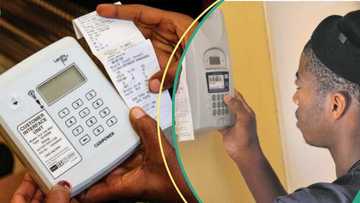5 reasons why UPS systems are still a necessity
Good power supply is a prerequisite for home and business functionality however, this is a constant challenge in some developing countries. For instance, in Nigeria only between 40 to 50 per cent of Nigerians have access to electricity, with the Nigerian electricity/ power system suffering an average of 4,600 power outage hours per year.
The availability of a reliable back up power system has become important for continuity and survival. While emergency power systems like inverters and stand-by generators have become the remedy of choice, there is still much to be said about the usefulness of a good Uninterruptible Power Supply (UPS) system.
From stalling of all activity tied to the electricity or power source, power outages have the potential to cause a lot of damage to home appliances as well as business/ commercial equipment.
Some of the common power problems that residential and business buildings may face include power failure, power surge, power sag, overvoltage, under voltage, switching transient and frequency variation, among others.
UPS systems are built to provide uninterrupted power flow to a load when the main power source fails and protect equipment and data from energy surges, irregularities or fluctuations that could otherwise cause irreparable damage.
READ ALSO: How to choose a circuit breaker
Below are five key reasons why the UPS system is a necessity for homes and businesses:
1.Uninterrupted Power
Like the solution definition suggests, UPS systems provide uninterrupted (steady, nonstop, peaceful, continual) supply of power where your main power source fails. There is no shock factor or break in transmission. The transition to a UPS back-up system is smooth and seamless. A bonus factor is that the power is instantaneous and requires little or no human manpower so that there’s no need for a mad dash to turn on your stand-by generator.
2. Protection
UPS systems monitor incoming voltage and can pre-empt power spikes, shifts or surges and prevent them from reaching devices connected to the system by switching to UPS power until the risk is averted, then switching back to the main power.
3. Leverage Chance
UPS systems give you a sometimes life-changing window of opportunity to save crucial data or create the necessary backup to continue your activity until power is restored.
4. Cost Effectiveness
Although a good UPS system may not be considered “cheap”, it is a cost-effective solution, especially when considering the amount of damage that could be caused and the resultant loss which may not be quantifiable in monetary terms where sensitive data/ information or even life-saving equipment in hospitals, for example, are concerned.
5. Master of Trades
UPS systems are available in a wide variety, designed to suit different needs. Whether for homes, businesses, data centers, banks, schools, TV stations or hospitals; there is a specific UPS system suited to meet the exact need.
For instance, a case study by Eaton revealed how the company worked with a children’s hospital in the United States that had struggled with power outages which shut down the hospital’s Magnetic Resonance Imaging (MRI) system forcing the hospital to have to deal with a 30-45-minute restart time when the power came back on; leading to under-productivity, loss of valuable time and consequently loss of money.
Eaton worked with the hospital and MRI manufacturers to provide a UPS system that would provide power conditioning and up to 15 minutes of back up time. This stemmed the need for patients to reschedule their appointments and enhanced reliability of the MRI system.
There is no doubt that the UPS system is one of the unsung heroes of power management. It should therefore remain a necessary and indispensable solution for all homes, businesses and organizations.
SOURCE: Eaton Corporation
NAIJ.com (naija.ng) -> Legit.ng: Same great journalism, upgraded for better service!
Legit.ng delivers powerful masterclass at SMW2019 | Legit TV
Source: Legit.ng





